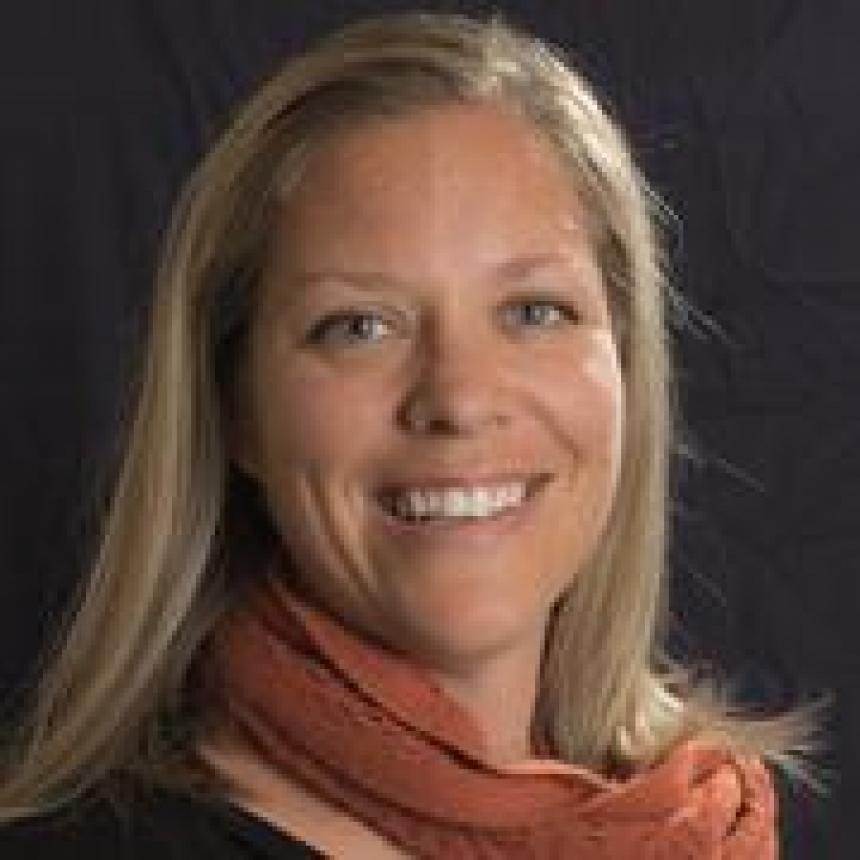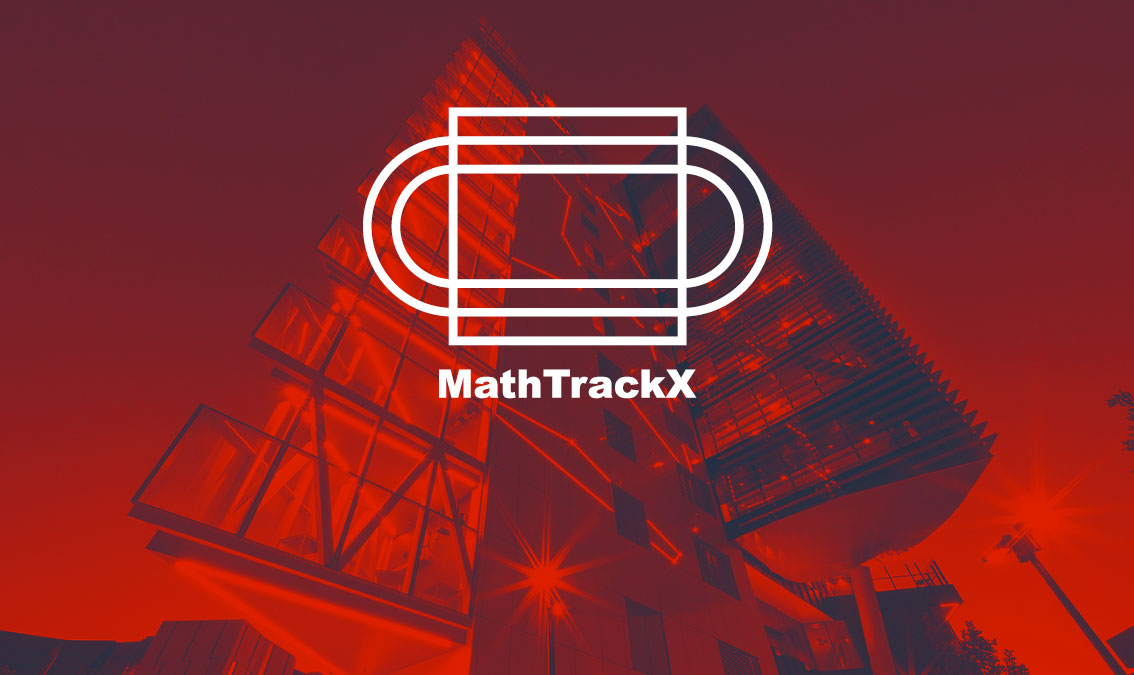Making maths accessible to everyone: A Q&A with Dr Melissa Humphries

Dr Melissa Humphries is Lecturer from the School of Mathematical Sciences and also a Course Instructor in the new MathTrackX XSeries Program.
The MathTrackX Program is the University of Adelaide’s year 12 online maths bridging program, offered through the edX platform. The program consists of 6 Massive Open Online Courses (MOOCs) that have been made in collaboration with The School of Mathematics, The Maths Learning Centre and the Online Programs Team. Find out more about the program here.
We caught up with Melissa to chat to her about her involvement in the MathTrackX program, how she got into mathematics in the first place, and how she has managed the challenges that COVID-19 has brought in terms of balancing teaching workload along with creating MOOCs remotely.
Here is what Melissa had to say:
What made you want to be involved in the MathTrackX Program?
I am passionate about making maths accessible to everyone. And I mean EVERYONE! Maths opens up so much of our world – from how you look at the clouds in the sky, to how you read a newspaper article. I feel like there are too many people burned by past experiences in maths that do not get to see what I see… I mean, I was one of them! I was a chef who never ever thought I’d end up using mathematics for a job! I started my journey to this job in a foundation program just like MathTrackX. So, when I get an opportunity to help others start down this amazing path, I always want to get involved.
From your perspective, why should people take the program?
It opens up doors. It helps you to think more critically and assess things in a more balanced way. The number of degrees and jobs you can have access to with some mathematical background is just so vast. You know, there are plenty of cool jobs that do not need maths, I know that. But the jobs you can do WITH maths, and the opportunities that they open up are just incredible.
What makes the MathTrackX program so good?
Literally a whole team of people, from theoretical to applied mathematicians, researchers and learning designers have all come together to create this program. And all of us have had student learning at the heart of our design. The whole team has been focussed on making this program accessible, interesting, motivating, inclusive and even a little bit fun. This program is the foundation you need to make sure you have a solid start to the next part of your journey.
This has been a collaborative project between The School of Mathematics and The Maths Learning Centre. What have you learned from this collaboration?
There are so many ways of teaching mathematics, so many ways of phrasing things… of examples you can give… places to start, ways of looking at things. And we are all really good educators, even though our styles may be a little different. It has been amazing to see how we have been able to collaborate to bring all of this together and find ways to include all of the different styles in a coherent and imaginative way that enhances the learning experience. This is one of the things I love about working across Schools, and even disciplines, in general! Pulling together and working with each other to acknowledge and include all of our styles has resulted in a really rich end product. It’s been a great collaboration between The School of Mathematics and The Maths Learning Centre, and this program is testament to that.
What have you learned from working with the Online Programs Team on the MathTrackX Program? Has this changed the way that you teach?
There are a couple of things I have learned during this process. Making sure that I phrase my online content appropriately is a big one! I’ve stopped saying things like “We are now going to…” because, let’s face it, I’m not! You are! And acknowledging that has been a big step. It has also reminded me about the diversity that we have in learning styles. People can just be so different! Making sure I have multiple types of information displayed in multiple ways is something I will try and do in the future to be accessible to as many people as possible.
COVID-19 has brought some challenging times, especially in terms of workload. How have you managed your University teaching, while also working on the MOOCs?
Do you really want to ask me that question? Hahaha! I mean, it’s been really really hard. There has quite literally been more than I can possibly do in the time that I have to do it. So I guess I have done a few things to find a way through the craziness. The normal stuff like, prioritising important tasks first (because what if everything is desperately important) and cancelling non-essential commitments, just hasn’t been enough. I’ve had to be realistic about the amount that I can get done. I have had to rely on the skills and abilities of others to step up and take over tasks that I haven’t wanted to let go. I have also made sure that I have kept lines of communication open to, not just my colleagues, but my students as well. Being open about the challenges we are all facing, being flexible as you approach every task, acknowledging that the essential changes you are making, under pressure, might not always work and adapting once you see the result – these have been the things that have helped to make this work. We are all in this together and if people can see you are trying your hardest and doing your best to do the right thing by them, they will understand and support you when you need it.
You used to be a chef, what inspired you to become a mathematician?
I annoyed the head of the school of English…. That’s the truth. It was at the day I was choosing my subjects and I’d chosen Psychology and Sociology. He told me I should do English if I wanted a back-up career as a teacher (I had enrolled in a Bachelor of Arts) and I told him I didn’t like English. So, he pushed me to the other side of the hall, swapped my enrolment to a Bachelor of Science and enrolled me in a Maths bridging course for the summer, then Calculus and Statistics for first year. I completely freaked out but, after I calmed down, I realised I’d only have to do Maths for a year and then I could drop them. But then I had Dr. Kumudini Dharmadasa for first year Calculus and she helped me to see the incredible possibilities in doing maths! It was SO INTERESTING! Nothing like what I had learned in High School… And then Stats! Well! I was sold. By the time I finished my undergraduate degree, I was offered an honours place in Psychology and in Mathematics. I chose Mathematics.
As a woman in STEM, what advice do you have for other women interested in this field?
Do what you love and be yourself. You don’t need to be more of anything, or any less of anything. Just work hard, stay focussed and believe in yourself. Dream big, because there is a huge world out there that is desperately in need of you. For your innovation, compassion, dedication, resilience… all of the things that make you unique are what STEM needs so that we can explore the massive expanse of possibilities that are out there. Sometimes it’s hard, but so can everything be. So just keep going and strive to make that difference. STEM is where the future is, and you can be a part of that.
About Dr Melissa Humphries
Melissa is an ex-chef, wannabe psychologist who somehow got lost in the maths along the way. Specialising in statistics and cognitive modelling, Mel is a lecturer at the University of Adelaide. Her non-traditional pathway into maths makes her an empathetic teacher who can explain things to a wide variety of people. Her research activities are mainly in the fields of Applied Mathematics, Statistics and Psychology and she has recently completed a PhD in the area of Mathematical Psychology.
About the MathTrackX Program
MathTrackX is an XSeries Program that has been designed to provide learners with a solid foundation in fundamental mathematics and how it can be applied in the real world. The 6 courses in this program will assist in developing the skills, knowledge and confidence for STEM related career development or preparation for further studies.
The program has been developed by a course team with members from Learning Enhancement and Innovation’s Online Programs Team (formerly AdelaideX), the Maths Learning Centre and the School of Mathematical Science.
This self-paced program will equip learners with a comprehensive understanding of the key underpinnings of mathematics, required for further study. Learners will develop skills in communicating mathematical solutions and arguments and build confidence in solving mathematical problems. Topics covered include methods and applications of differentiation, integration, probability and statistics.
Upon successful completion, this program will be accepted as a prerequisite in place of SACE Stage 2 Mathematical Methods at the University of Adelaide. MathTrackX is not a replacement for SACE Year 12 Stage 2 Maths Methods but could be a useful study tool towards completion of this certificate.


